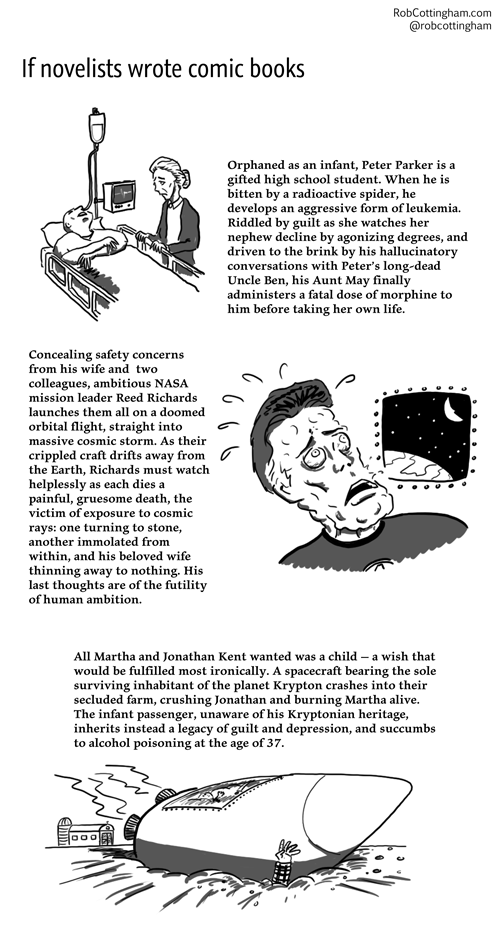Many great novels, like a lot of great art, force us to confront things we’d rather avoid. I get that.
But oh my lord, literature can be a massive downer. I first encountered that in high school, when we read the short story “Paul’s Case” back to back with The Mayor of Casterbridge. Let’s be clear: astonishing works of art are astonishing. But after years of stories where plucky protagonists invariably wrested victory from the jaws of defeat, they were a shock. As an introduction to tragedy, it was like learning how to eat spicy food by eating a scotch bonnet salad.
Later in life, I read Fall On Your Knees. It’s a truly beautiful novel, one of the best I’ve ever read. It’s also like peeling an Onion of Horror: just when you think the day at the centre of the plot couldn’t possibly get any worse, holy Jesus does it ever. I recommend it strongly, with the caveat that a list of trigger warnings would be longer than the book itself.
It’s taken me years to realize that I have a limited capacity for bleakness, even in the context of immense beauty. (Maybe especially in that context.) It’s what stopped me from reading the rest of A Fine Balance: after a few chapters, you get that dawning recognition that this is not going to end with everyone enjoying a hearty laugh and a second helping of trifle.
The cost of avoiding books like that is obvious: you miss out on some transcendent experiences, and some profound insight into what it means to be human. The older I get, the keener my sense of how steep that cost really is.
Maybe it’s not too late for me. Maybe someday I’ll get to the point where I seek out novels that unflinchingly stare into the darkest crevices of the human heart.
Until then, I’m working my way through the Jasper Fforde oeuvre.

